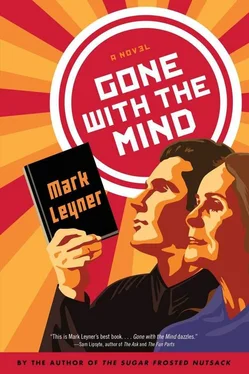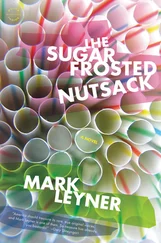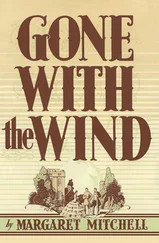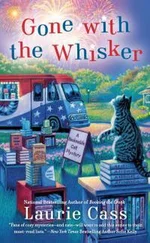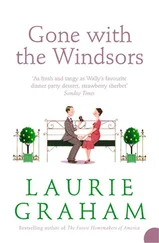It’s very interesting all the transference and countertransference that can go on between two strangers drinking together at bar, and I found myself telling the guy about how, when I was a little boy, my grandfather Raymond (my mom’s dad) gave me a card — a store-bought, Hallmark card he presumably took the time to search out at a drugstore somewhere or other — congratulating me for receiving a Cub Scout merit badge, the one I was awarded for extinguishing my den mother’s hair which she’d set on fire lighting her cigarette off the stove-top burner, that whole business, which I think particularly pleased my grandfather because it undergirded his contention that cigarettes were a “filthy habit,” something he repeated with the distaste of a convert, having smoked two packs of unfiltered Chesterfields a day for the entirety of his adult life until making a bet with a colleague who said he couldn’t quit, and never smoking another cigarette from that moment on ever again.
Intellectual histories tend to underestimate the importance of blows to the head. Occasionally we hear about a rare case of acquired savant syndrome in which prodigious mental skills emerge after a brain injury, typically an injury to the left anterior temporal lobe, where there’s a subsequent recruitment and rewiring of still-intact cortical tissue resulting in a release of dormant potential. And didn’t we all as schoolchildren impishly suspect that Newton’s legendary flash of intuition as he sat under a tree in his mother’s garden in 1666, his great epiphany about gravitation, was the result of a traumatic brain injury caused by the falling apple that hit him in the head? But I really think — I know, actually, from personal experience — that the phenomenon is much more prevalent than has been reported, and I think the government is suppressing this out of fear that young writers, our most gifted, most impish young writers (by whom I mean those who write the most beautiful code) would keep mallets in their little cubbyholes and bludgeon themselves when feeling blocked or fallow. And then there are the older ones, like me, in their improvised ateliers — their bathrooms and their cars — and here it’s less a bludgeoning than a metronomic tap-tap-tap…a metronomic tap-tap-tap, submerged in the concentric clamor of the day. That’s probably the best way I can express how I feel like nothing and everything at the same time…a metronomic tap-tap-tap, submerged in the concentric clamor of the day.
In the summer of 1967, in the front yard of our shore house at 73 Neptune Avenue in Deal, New Jersey, my grandfather Raymond hit me in the head, flush in the forehead, with a baseball. He was a strong, barrel-chested, bandy-legged guy, and I remember him winding up…he had this crazy, elaborate, sort of contorted Luis Tiant — style windup…and I can still picture this old three-fingered, linseed-stained mitt he had…he wound up, delivered his high cheese, and I didn’t even have the chance to reflexively raise my glove to protect myself. They didn’t have radar speed guns in those days, but I’m estimating he hit me in the head with a sixty-five-mile-an-hour fastball.
And it knocked me out cold. And there I was, lying unconscious on the ground…like some poor street kid hit by a rubber bullet in a restive favela, a poor, woozy, little blond, daydreamy cabbage-patch sphinx, mouth agape, drooling — had I wet my pants just a bit? — and in the violent recoil of my head, my mind’s eyeball ricocheted forward, a projectile hurtling into the future. And the women present — my mother, my aunt, my grandmother — were screaming and they’d all instinctively lurched toward my limp, crumpled body, and my grandfather warned them, in his resounding voice, against coming any closer, “He’s fine. Don’t be idiots.” But my mother just flung him aside, she just flung him aside, like he was nothing. And when I came to — and I can remember this so vividly, the air a heavy haze of mint and honeysuckle, blurred by the heat and the vibrations of bees and dragonflies — I was cradled in her arms, this time very much as sons are cradled by their Marys in Pietà sculptures, though, today, in retrospect, it reminds me so much more of that wonderfully Oedipal scene in White Heat when the deranged, psychopathic gangster Cody Jarrett (played by James Cagney) has one of his seizures and keels over onto the floor in front of his crew, and his mother, Ma Jarrett (Margaret Wycherly), manages to steer him into the bedroom of this cabin they’re holed up in, and he says to her, “It’s like having a red-hot buzz saw inside my head,” and she massages the back of his neck until he’s feeling better and ready to go back out into the living room, but she says, “No, not yet, son. Don’t let ’em see you like this. Might give some of ’em ideas,” and Cody sits on her lap and he says, “You’re always thinkin’ about your Cody, aren’t ya?” and his mom gets up and pours him a glass of whiskey, and says, “Top of the world, son,” and Cody says, “Don’t know what I’d do without ya, Ma,” and he knocks back the whiskey, and his mom says, “Now go on out there, and show ’em you’re all right.” I know that scene by heart. That’s one of my favorite scenes of all time (that and the closet scene with Hamlet and his mother, Gertrude). And I think that even in my life now, even tonight here at the food court, I’m still trying to just go out there and show ’em that I’m all right.
In that moment, when I regained consciousness on the lawn of that house in my mother’s arms, I immediately realized that I was a different person. It was a moment of germination, a crossroads. I do very much believe that being hit in the head with that baseball marked the beginning for me of the vita contemplativa, of my amor dei intellectualis, that very instant I crossed the threshold into Studio Mizuhō. And though I was only eleven at the time (and obviously didn’t have the vocabulary then to adequately articulate these kinds of things), those matters which would preoccupy me for the rest of my life crystallized in my mind in that instant, on impact: To express that which only the futility of language can express, and that only the specific futility of this specific language can express. And to contest in a particularly expert manner the domain of the expert; to contest in a particularly exceptional and artistic manner, the domain of the exceptional artist.
There’s a didactic purpose behind almost everything a parent or a grandparent does. If your father runs you over with his own car, it’s probably to teach you not to nap in the driveway. If he’s been drinking and he stabs you with a fork, it’s probably to teach you not to get too close to drunk people while they’re eating. Of course, you don’t realize this when you’re a child, you just assume you’re being tormented. When I was that age, I identified very strongly with persecuted minorities, among which, in my accursed singularity, I considered myself the most ruthlessly persecuted. And it probably seemed to me that my grandfather was just being a cretin who got off on treating me like one of those milk bottles you knock down for prizes at a carnival. But I’m sure he was trying to teach me to pay attention when you’re playing catch with someone instead of staring up at zeppelins, which I had a tendency to do. But my mom, reluctant to expose me to repeated blows to the head, gently discouraged me from playing catch with my grandfather ever again. “You don’t want to get chronic traumatic encephalopathy, do you?” she asked. “Gosh, Mom…I guess not.” As I stand here before you tonight, I can remember exactly what she was wearing at that very moment — a blue-and-yellow-striped tunic top, gray clam-digger pants, and flats — compelling evidence, I believe, that I do not suffer from chronic traumatic encephalopathy. And allow me to offer one final “fuck everyone who said I was too brain-traumatized to succeed in life” (even though they were probably right).
Читать дальше
